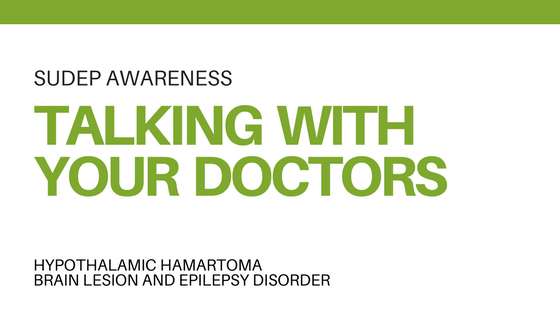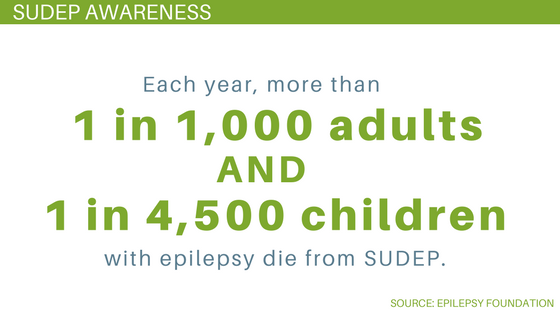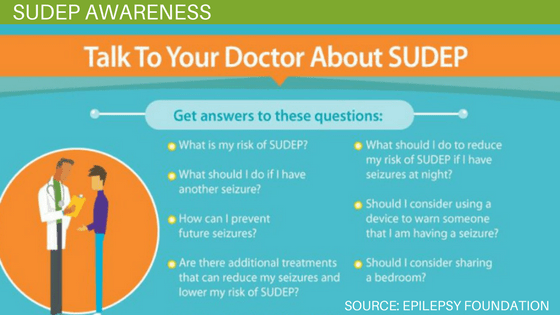SUDEP Awareness Series | Part 2 – Talking about SUDEP with your doctors
In Part 2 in our SUDEP blog series – Talking about SUDEP with your doctors, we’ll provide information and guidance on how to begin the SUDEP conversation with your doctors.
What Is SUDEP?
SUDEP is the sudden, unexpected death of someone with epilepsy, who was otherwise healthy. In SUDEP cases, no other cause of death is found when an autopsy is done. Each year, about 1 in 1,000 adults and 1 in 4,500 children with epilepsy die from SUDEP. This is the leading cause of death in people with uncontrolled seizures.
Why Has My Doctor Never Talked About SUDEP?
Talking about SUDEP is hard for doctors, nurses and other health care providers to do too. One reason is that there is still a lot we don’t know about SUDEP. We know about some risks – such as poor seizure control, seizures at night, and age – but there’s a lot that we are not sure about. Here are a few reasons why health care professionals may have difficulty talking about SUDEP.
- They may not want to bring it up unless you are at high risk.
- They may not know what your risks are yet. Health care professionals like to bring it up once they know more about a person’s risks.
- They may be waiting for the right time to bring it up.
- They may fear that talking about SUDEP will be too upsetting for you or your family.
Should I Wait For My Doctor To Bring It Up Or Should I Ask About SUDEP?
The answer may be different for different people. Some people like to know everything as soon as possible after they are diagnosed. Others need time to digest the information. Getting used to a diagnosis of seizures or epilepsy takes time. And if too much information is given all at once, usually people don’t remember it all, or it gets too confusing.
- If you have heard about SUDEP but never talked to your doctor about it, it’s time to ask questions. It’s important to get the facts from someone who knows you and who can tell you what it may mean for you.
- Talking about SUDEP will take time, so don’t bring it up at the end of an appointment.
- Tell your doctor or nurse that you have questions and ask when you can talk about it. They may recommend booking a separate visit to discuss your concerns. This way you‘ll have plenty of time.
- Write down what your doctor or nurse tells you. It’s hard to remember what is said during a stressful conversation.
- Download a SUDEP brochure to share with your doctor and help begin the discussion
More specific questions related to SUDEP to talk about:
- What is my risk of me/my loved one dying during a seizure? What is my risk of SUDEP?
- Does having seizures at night mean I/they could die during a seizure?
- What types of devices can be used to alert someone of a seizure?
- Should I consider sharing a room? Should I use a monitor for my child?
Please check out our complete SUDEP blog series:
- Part 1 – What is SUDEP? Who is at Risk?
- Part 2 – Talking about SUDEP with your doctors
- Part 3 – SUDEP Research
Hope for HH would like to Thank the Epilepsy Foundation for the information contained in this blog. They have a great deal more information on their website.
The Epilepsy Foundation has also created the SUDEP Institute to increase awareness and support research. If you have been touched by SUDEP or want to learn more about their mission you can go to The SUDEP Institute.
If you suspect your loved one may have passed due to SUDEP, or would you like to get involved with Hope for HH’s efforts to raise awareness of SUDEP within our community, please contact us at info@hopeforhh.org.








